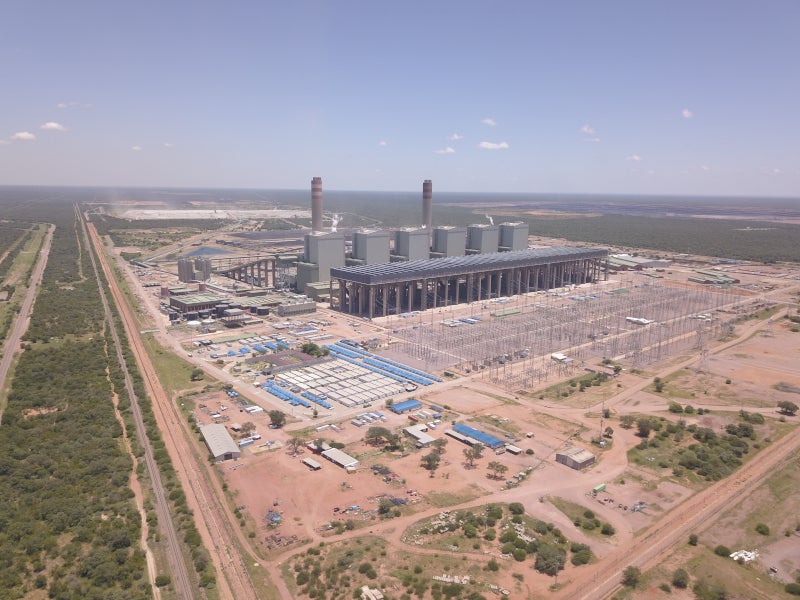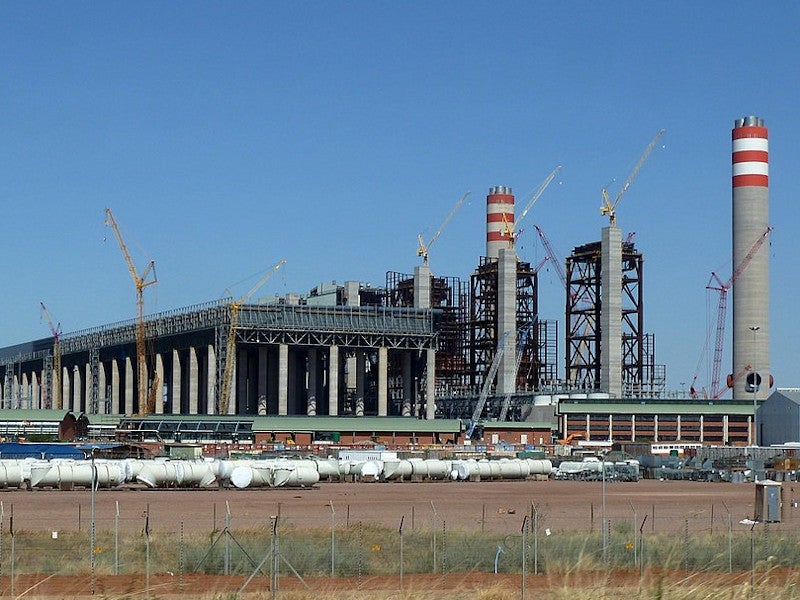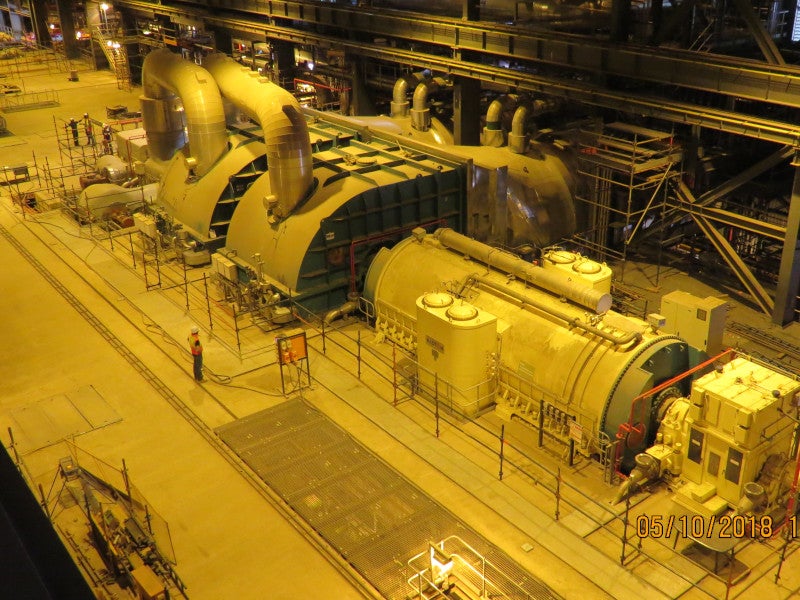The 4.8GW Medupi coal-fired power project in the Limpopo province of South Africa is expected to achieve full capacity in the latter half of 2020. Owned and operated by South African state-owned power utility Eskom, it will be the biggest dry-cooled coal-fired power station in the world.
The construction of the Medupi power plant was started in 2007 and all six generating units of the facility were intended for commissioning in 2015 with an original cost estimate of £3.5bn ($4.4bn).
The project cost has, however, escalated to £7.2bn ($9bn) due to delays in construction and defects in the plant equipment.
The first unit of the power plant achieved commercial operation in August 2015 which was almost three years behind the original schedule. Five of the six units were commissioned as of November 2019, while the last unit is expected to come online in the second half of 2020.
The 4.8GW coal-fired facility will operate as a base-load power station and is expected to generate enough electricity for approximately 3.5 million South African households.
Location and site details
The Medupi power project is located on an 883ha-site near Lephalale, in the Waterberg district of Limpopo, approximately 350km north of Johannesburg, South Africa.
The plant site lies close to the border between South Africa and Botswana.
Plant make-up
The Medupi power station comprises six supercritical coal-fired units of 800MW capacity each. Each unit consists of a steam turbine and generator along with an air-cooled condenser supplied by GE, and a supercritical boiler supplied by Mitsubishi Hitachi Power Systems (MHPS), apart from the associated control and instrumentation system and other auxiliary equipment.
The plant uses two reinforced concrete chimneys of 220m height each with each flue stack meant for catering to three generating units.
The Medupi power plant employs a dry cooling system in order to reduce the usage of water.
Coal supply for the Medupi power plant
Exxaro, a coal and heavy minerals mining company operating in the Mpumalanga and Limpopo regions of South Africa, signed a pact with Eskom in September 2008 to annually supply 14.6 million tonnes (Mt) of coal for the Medupi power station for a period of 40 years.
Exxaro has been supplying coal to Medupi from its Grootegeluk open-pit coal mine located approximately 20km west of Lephalale on the southern margin of the Waterberg coalfield. The coal is transported by a conveyor belt from the mine to the power station.
The Grootegeluk mine holds more than 3.2 billion tonnes of proved and probable coal reserves and is claimed to have the world’s biggest coal beneficiation complex.
Project finance
The Medupi power project is funded by various financial institutions including the African Development Bank (AfDB), World Bank, and the China Development Bank (CDB).
The African Development Bank approved a loan of approximately £1.6bn ($2.64bn) for the project in November 2009, which was utilised by Eskom to buy boilers and turbo-generators for the project.
The World Bank agreed to provide a loan of approximately £1.96bn ($3.05bn) for the Medupi power project in April 2010.
The China Development Bank approved a £1.15bn ($1.5bn) loan for the project in July 2017.
Contracts awarded for the Medupi power plant
Alstom, now General Electric (GE), was awarded an engineering, procurement, and construction (EPC) contract worth more than £1bn ($2bn) for six turbine islands and air-cooled condensers for the Medupi coal-fired power station in 2007.
Alstom further secured a contract to supply automation systems for the power plant in November 2009. It supplied the ALSPA Series 6 Distributed Control System (DCS) along with related instrumentation as part of the contract.
GE completed the acquisition of Alstom’s power and grid business in November 2015.
Hitachi, now Mitsubishi Hitachi Power Systems (MHPS), received a £1.42bn ($2.91bn) contract to supply, construct and install six supercritical boilers for the power plant in 2007.
Medupi Power Station Civils Joint Venture (MPSJV), a consortium of Concor (formerly Murray & Roberts Construction) and Grinaker, was awarded the civil engineering contract for the project, while Ovivo Aqua constructed the water treatment plant for the power station.
ACTOM MV Switchgear bagged a £22m (R275m) order to supply 280 units of 12kV and 360 units of 17.5kV medium voltage switchgear for the power plant in August 2009.
Basil Read was awarded a contract worth £45m (R516m) for the construction of ash dumps and dams at the power plant in 2011.
Hadek provided the pennguard lining protective system for the chimneys at the Medupi power plant.





